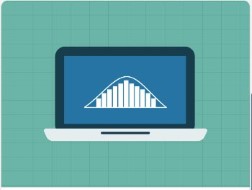Linear Algebra for Data Science in R
This course is an introduction to linear algebra, one of the most important mathematical topics underpinning data science.
Course Description
Linear algebra is one of the most important set of tools in applied mathematics and data science. In this course, you’ll learn how to work with vectors and matrices, solve matrix-vector equations, perform eigenvalue/eigenvector analyses and use principal component analysis to do dimension reduction on real-world datasets. All analyses will be performed in R, one of the world’s most-popular programming languages.
What You’ll Learn
Introduction to Linear Algebra
In this chapter, you will learn about the key objects in linear algebra, such as vectors and matrices. You will understand why they are important and how they interact with each other.
Eigenvalues and Eigenvectors
Matrix operations are complex. Eigenvalue/eigenvector analyses allow you to decompose these operations into simpler ones for the sake of image recognition, genomic analysis, and more!
Matrix-Vector Equations
Many machine learning algorithms boil down to solving a matrix-vector equation. In this chapter, you learn what matrix-vector equations are trying to accomplish and how to solve them in R.
Principal Component Analysis
“Big Data” is ubiquitous in data science and its applications. However, redundancy in these datasets can be problematic. In this chapter, we learn about principal component analysis and how it can be used in dimension reduction.
User Reviews
Be the first to review “Linear Algebra for Data Science in R”
You must be logged in to post a review.







There are no reviews yet.